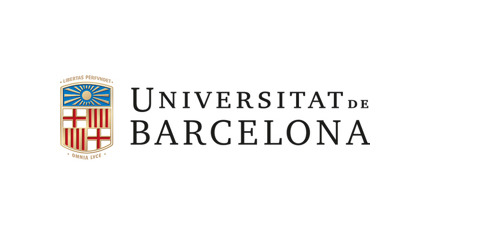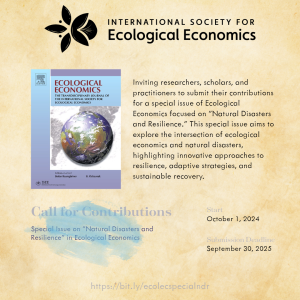Postdoctoral Researcher in Input–Output and Time-Use Analysis

We are looking for an outstanding postdoctoral researcher with expertise in input–output analysis to contribute to a new Horizon Europe research project entitled Models, Assessment, and Policies for Sustainability (MAPS). This is a 2-year position, starting June 2024, with the possibility of an extension for an additional two years.
The position: The position will conduct research to understand the resource use and time-use requirements of achieving a good life for all people within planetary boundaries. The methods employed will include input–output analysis (to estimate the resource use and paid labour requirements of meeting basic needs), and time-use analysis (to estimate the amount of unpaid labour and leisure time associated with meeting these needs).
Essential — The successful candidate will have:
- A PhD in an area such as ecological economics, feminist economics, sustainability science, natural/social sciences, or a related field. Completion of a PhD by the start date of the contract is a requirement for the position
- A track record of relevant research publications in internationally recognised journals
- Expertise in input–output analysis
- Motivation and initiative to work both independently and as part of an interdisciplinary team
- Excellent verbal and written communications skills
- Excellent organisational and time management skills
- Fluency in English
Desirable — The successful candidate may have:
- Experience working with time-use data
- Expertise in computer programming
- Expertise in additional quantitative research methods (e.g. time-use analysis, system dynamics, machine learning, econometrics, advanced statistics, big data, material flows analysis, etc.)
- Knowledge of post-growth research topics (e.g. human well-being, gender studies, provisioning systems, the Doughnut of social and planetary boundaries, etc.)
- Proficiency in Spanish and/or Catalan
The position will be based in the Faculty of Economics, at the University of Barcelona (Spain), under the supervision of Dr Daniel O’Neill and Dr Federico Demaria.
How to apply: Please submit your CV and a motivation letter (max 2 pages) to Dr Daniel O’Neill and Dr Federico Demaria at ecoeco.recruitment@gmail.com by 10 March, 23:59 CET. The subject of your email should be: “Application for Postdoc Position in Input–Output and Time-Use Analysis”.
Within your motivation letter, please indicate how your skills and experience match the essential/desirable specifications listed above, and discuss how you would go about quantifying the resource use and labour/time-use requirements of a good life.
Please ask two referees to submit reference letters for you to ecoeco.reference@gmail.com by 10 March 2024, 23:59 CET. The subject of their emails should be: “Reference for YOUR NAME”.
Deadline to apply: Sunday, 10 March, 23:59 CET
Start date of position: June 2024
Salary: €36,250 per year
Online interviews are expected to be held 21–22 March 2024.
The MAPS project: There is an urgent need for a new economic paradigm that reconciles human well-being with environmental sustainability — one based on a “post-growth” approach. High-income countries must move beyond the pursuit of GDP growth as a policy goal, and instead pursue policies that improve human well-being while reducing resource use.
The aim of the MAPS project is to broaden the range of policies, models, and assessments to help achieve sustainability, equity, and human well-being. It is a 4-year Horizon Europe research project coordinated by the University of Barcelona, with nine other partners across Europe.
The successful candidate will join one of the top groups of post-growth researchers in the world. We work closely as a team, and the successful candidate is expected to live and work in the Barcelona area. Barcelona is a dynamic city on the Mediterranean, with a very high quality of life. The University of Barcelona is generally regarded as the top university in Spain, and one of the best in Europe.
We are committed to advancing the careers of junior women researchers, and researchers from under-represented backgrounds, who are encouraged to apply.


